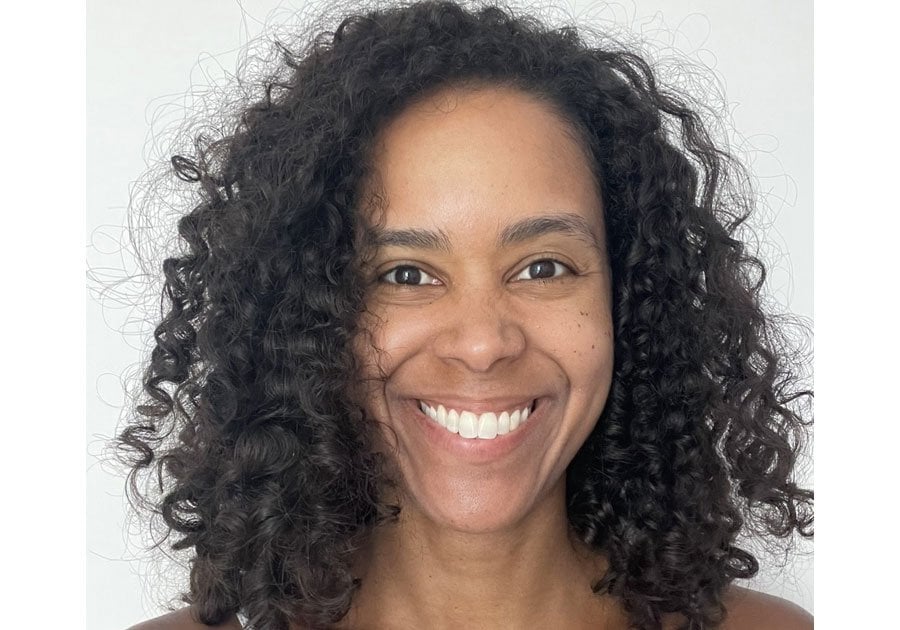Alumni Profile: Francelle Kwankam Toedtli
20 June 2024 London School of Hygiene & Tropical Medicine London School of Hygiene & Tropical Medicine https://lshtm.ac.uk/themes/custom/lshtm/images/lshtm-logo-black.png
Current job title and organization
Technical Specialist, Sexual and Reproductive Health and Rights and Maternal and Newborn Health, United Nations Population Fund (UNFPA)
Can you please tell us a bit about your current work/research?
At UNFPA I focus on strengthening access to a range of integrated sexual and reproductive health and rights services and interventions, including ante-,peri- and post-natal care. My role involves ensuring that regional and country teams have evidence-based information, research and international guidelines to support governments and other stakeholders to define high quality policies, guidelines and to strengthen access to care. The work I do is holistic in nature, focusing not only on partnering with stakeholders to strengthen health systems to deliver quality care (ensuring healthcare providers are trained and willing to deliver evidence-based and respectful care, commodities are available, facilities can physically accommodate pregnant women and girls) but also to sensitize and support communities to exercise their rights to access quality care, and all within an enabling environment focused on gender equality, self-agency and bodily autonomy at all levels.
What course and year did you study at LSHTM?
2010-2011 I did the MSc on Public Health with a focus on Health Promotion
Why did you choose to study with LSHTM?
I was looking for a truly global community of experts, eager learners who had a wealth of experience across geographic contexts within public health, and especially sexual and reproductive health. This was the community I found at LSHTM.
What were your favourite memories from your studies with us?
I enjoyed many things about my experience at LSHTM from the state-of-the art teaching by experts, which creating a strong foundation for my understanding and future work in public health, to the valuable experiences shared by fellow peers in classes and small-group discussions, to the context within London, so close to historical museums and fellow University of London campuses buzzing with ideas and inspiration. One of the big things I take away with me are all the insightful conversations I had with peers in hallways, at lunch and social events, which both inspired and emboldened me to continue on my path to work in this field.
How has your LSHTM degree helped you in your career?
The foundational classes at LSHTM (principles of social research, epidemiology, basic statistics, etc.) have been very helpful to me. I regularly assess evidence to understand what the data says about the most impactful interventions within SRHR. The courses within my specialization of health promotion were also invaluable, teaching me the frameworks and approaches to develop programmes to positively impact people (the “how” of public health). Many programs are heavy on theoretical knowledge, but at LSHTM we were able to also focus also on how to apply information to real situations to affect real people, which I use regularly in my work.
What would you like to achieve in future?
The work I do is very close to my heart. As I progress in my career I hope to continue serving women and girls, ensuring that everyone has access to quality information and services on sexual and reproductive health and rights. This means growing global programmes across multiple geographies and for all individuals, but especially adolescents, youth and other groups who might have challenges in accessing care. This means being guided by and growing the evidence-based for impactful work, leaning into innovation, including digital and tele-approaches. This means understanding the impact of crises, conflicts and climate change on people’s ability to exercise their rights and access care and tailoring programmes to these contexts. And foundationally, this means centering people’s rights, preferences and values in global work and moving towards a more equitable and just world.
Do you have any advice for students/recent graduates?
My advice would be to have a plan for where you’d like to go, but to stay open and lean into possibilities. Some of most exciting career and life opportunities I’ve had have been things that I hadn’t anticipated as part of my life plan. Take inspiration from those around you and remember that every new path is an opportunity for growth and learning.